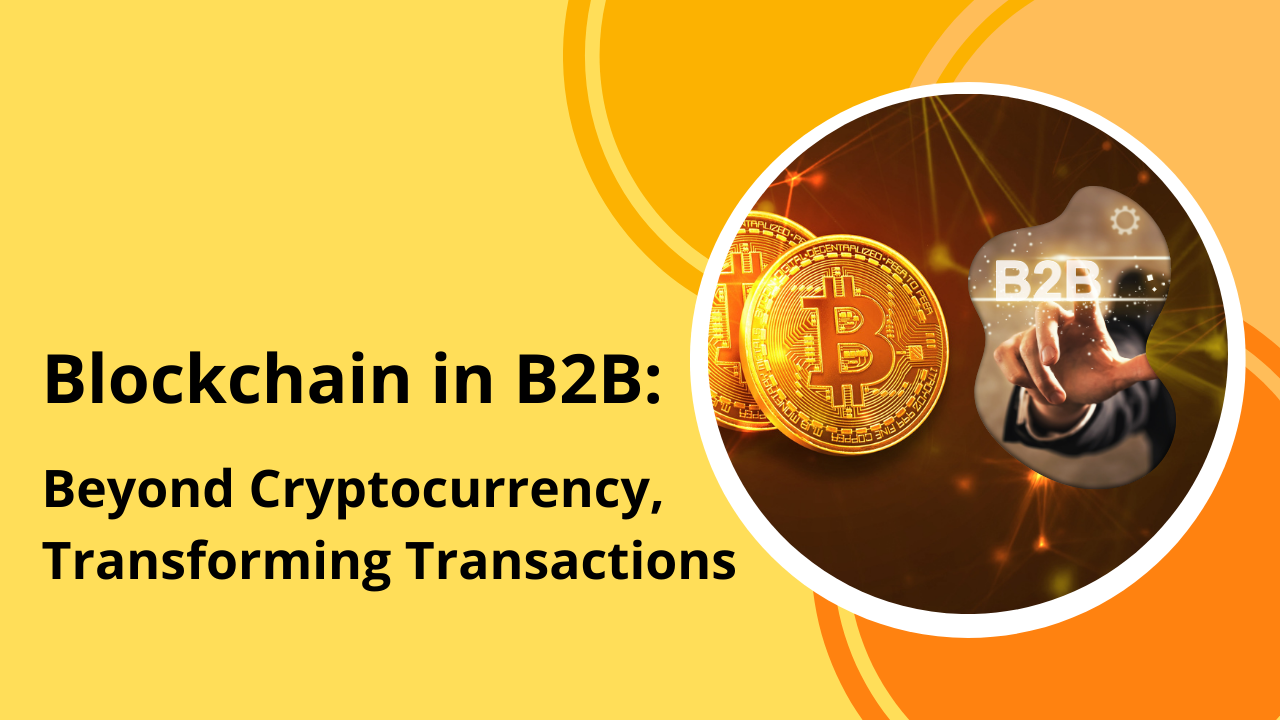Blockchain in B2B: Beyond Cryptocurrency, Transforming Transactions
Blockchain technology, often associated with cryptocurrencies like Bitcoin, is proving to be a transformative force in B2B transactions and supply chain management. While cryptocurrencies grabbed headlines, blockchain quietly emerged as a powerful tool that can enhance transparency, security, and efficiency in B2B processes. In this blog, we’ll delve into the potential of blockchain and how it’s revolutionizing the way businesses transact. Drawing on my experience as a senior B2B content writer at ServeIT Data, previously with Forrester, I’ll explore how blockchain is changing the B2B landscape.
Understanding Blockchain Technology
Before we dive into its applications in B2B, let’s grasp the fundamentals of blockchain technology:
- Decentralization: Unlike traditional databases that are stored on a central server, blockchain data is distributed across a network of computers, making it more secure and resistant to tampering.
- Security: Blockchain employs advanced cryptographic techniques to ensure the integrity and security of data, making it nearly impossible to hack or alter.
- Transparency: Transactions recorded on the blockchain are visible to all parties involved, enhancing trust and transparency.
- Smart Contracts: Smart contracts are self-executing agreements with the terms of the contract directly written into code. They automatically execute when predefined conditions are met.
Applications in B2B
Blockchain’s applications in the B2B realm are wide-ranging. Here are some key areas where it’s making a significant impact:
- Supply Chain Management: Blockchain’s ability to create an immutable record of products from origin to destination is a game-changer for supply chain management. It enables real-time tracking, reduces fraud, and ensures product authenticity. For example, IBM’s Food Trust platform uses blockchain to trace the journey of food products from farm to store.
- Smart Contracts: B2B transactions often involve complex agreements that require extensive documentation and time for execution. Smart contracts automate this process, ensuring that transactions are completed when predefined conditions are met, thus reducing time and costs.
- Cross-Border Payments: Blockchain can streamline cross-border payments by eliminating the need for intermediaries. This reduces fees and transaction times, making international trade more efficient.
- Identity Verification: Blockchain can enhance identity verification processes, which are crucial for B2B transactions. Verified identities on the blockchain increase trust between parties, which is especially important for remote or international dealings.
- Reducing Fraud: The transparency and immutability of blockchain records reduce the risk of fraud. Companies can track every step of a transaction, making it difficult for malicious actors to manipulate data.
Challenges and Future Outlook
While blockchain presents significant opportunities for B2B, there are challenges to overcome, such as scalability issues, interoperability, and regulatory concerns. However, as more businesses adopt blockchain solutions, these challenges are being addressed.
The future of blockchain in B2B is bright. As adoption grows, we can expect more innovative applications and greater integration with existing systems. In the next few years, we’ll likely witness a more secure, transparent, and efficient B2B landscape thanks to blockchain technology.
In Conclusion, Blockchain technology is revolutionizing B2B transactions and supply chain management. Its decentralization, security, transparency, and smart contract capabilities make it an invaluable tool for businesses seeking to enhance efficiency and trust in their operations. Real-world applications, such as Walmart’s traceability platform and Maersk’s TradeLens, illustrate the transformative potential of blockchain. Although challenges exist, the future of blockchain in B2B is promising, and we can anticipate a more secure, transparent, and efficient B2B landscape as adoption continues to grow.


